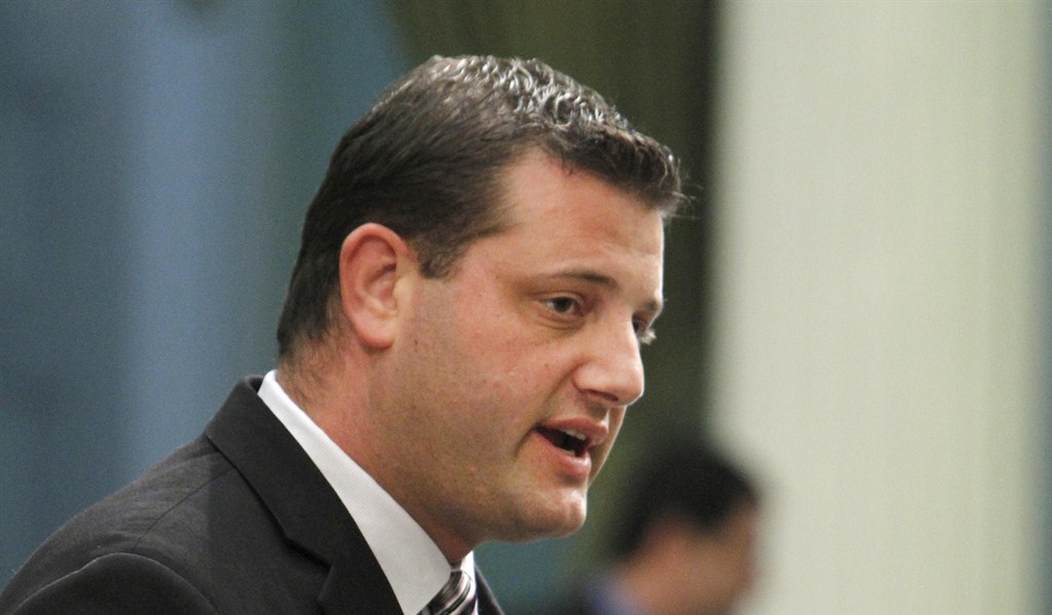In then-President Donald Trump's second impeachment, 10 Republicans voted for impeachment articles, and it didn't turn out well for their political future. By the time the trial took place in the Senate, Trump had already left office and Biden had been inaugurated. Of those 10, only two made it out of their primary, including Rep. David Valadao (R-CA). As a Wednesday morning report from Mychael Schnell and Caroline Vakil warned for The Hill, he's "facing a tough battle."
California has a jungle primary and Rep. Valadao didn't even come in first in the June primary, though his second place finish with 25.58 percent of the vote enabled him to advance. Democrat Rudy Salas came in first, way ahead of the Republican, with 45.22 percent of the vote. Valadao was actually not too far ahead of the third place finisher, Republican Chris Mathys, who came in with 23.40 percent.
While Mathys was not backed by Trump, impeachment did complicate the primary, an expert is cited as saying. "I think it definitely made his primary race require more effort maybe than normal," Lisa Bryant, chairwoman of the department of political science at California State University, Fresno, is quoted as saying.
As it turns out, the report details that part of the drama for the race stems from Democrats boosting Mathys in the primary, via ads from the House Majority PAC:
In a highly controversial move that brought criticism from some Democratic lawmakers, Democratic groups ran ads during Valadao’s primary that sought to elevate Trump-aligned GOP candidate Chris Mathys.
The House Majority PAC, which is aligned with Speaker Nancy Pelosi (D-Calif.), released an ad saying that “David Valadao claims he’s Republican, yet David Valadao voted to impeach President Trump.” It called Mathys a “true conservative” and “100 percent pro-Trump.”
Democrats have utilized similar tactics in other GOP primaries, banking on the idea that propping up more hard-line conservatives in primaries will give them easier opponents to beat in general elections, despite complaints from some members.
...
The House Majority PAC and other groups have been unapologetic about the strategy.
“David Valadao is an out-of-touch extremist who voted against a law to prevent gas price gouging and would eagerly help Kevin McCarthy implement a national abortion ban. That’s why House Majority PAC is doing whatever it takes to elect Rudy Salas and flip this seat blue in November,” House Majority PAC Communications Director C.J. Warnke told The Hill in a statement on Monday.
Recommended
This tactic, as briefly mentioned in the report, is nothing new. The Democratic Congressional Campaign Committee (DCCC) shamelessly boosted John Gibbs in Michigan's 3rd Congressional Republican primary in August. Gibbs, who ultimately prevailed, was running against Rep. Peter Meijer (R-MI), another pro-impeachment Republican.
While Rep. Sean Patrick Maloney (D-NY), the DCCC chairman, has defended the move since Gibbs is considered easier for Democratic nominee Hillary Scholten to beat. That being said, the race is still only considered "Tilt Democratic" or "Lean Democratic" by many forecasters, and Decision Desk HQ still has that race as a "Toss-Up."
Rep. Dan Newhouse (R-WA) is the only other pro-impeachment Republican to have prevailed in his primary. With 25.49 percent of the jungle primary for Washington's 4th Congressional District in August, Newhouse did just a hair better than Democrat Doug White with his 25.22 percent of the vote, though that race is considered "Safe Republican" or "Solid Republican."
Most of those other Republicans retired rather than lose their races, including Reps. Adam Kinzinger (R-IL), Anthony Gonzalez (R-OH), Fred Upton (R-MI), and John Katko (R-NY). Others lost their primaries, including Reps. Meijer, Liz Cheney (R-WY), Tom Rice (R-SC), and Jaime Herrera Beutler (R-WA).
This race between Valadao and Salas for California's 22nd Congressional District is considered a "Toss-Up."

























Join the conversation as a VIP Member